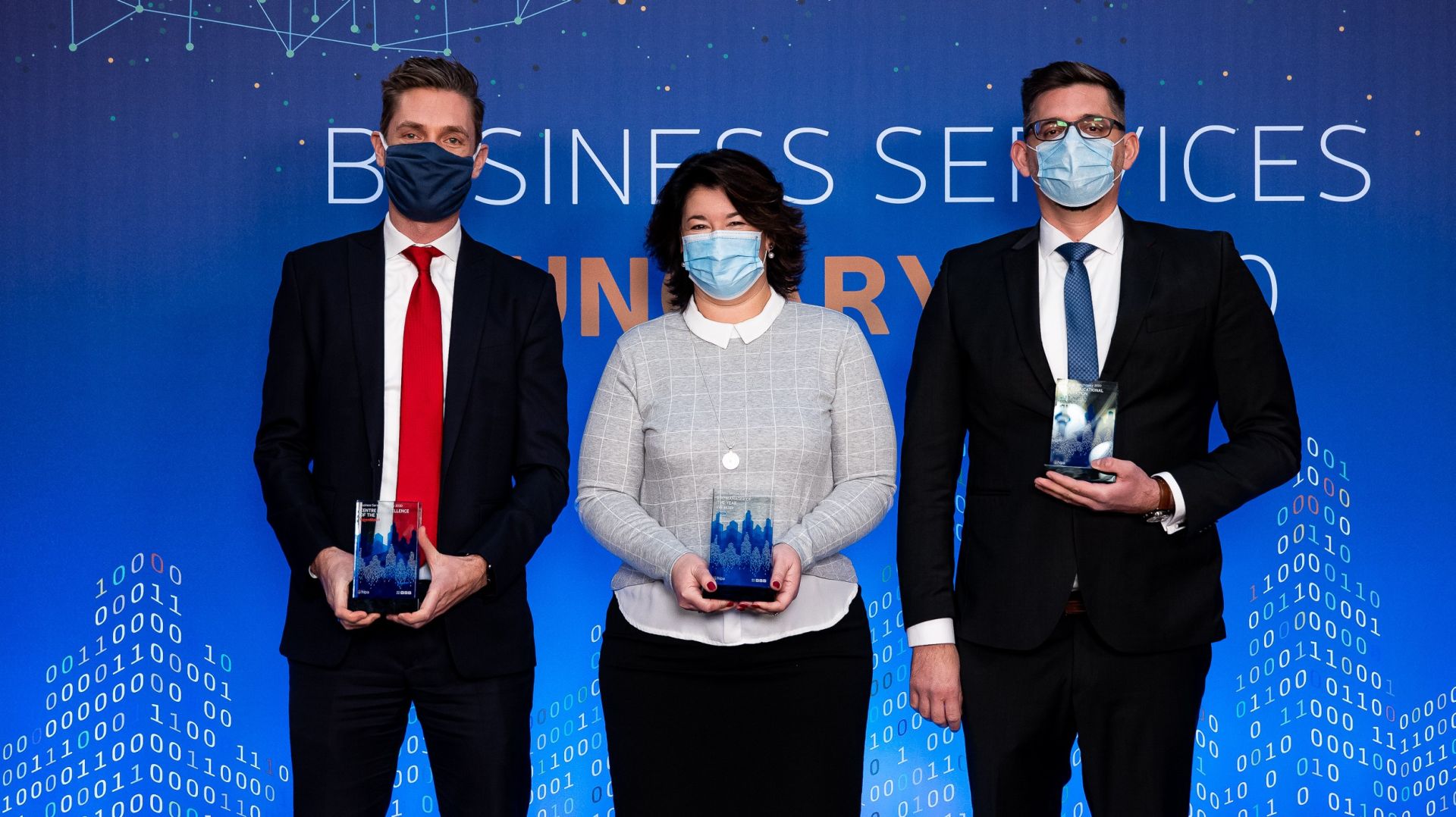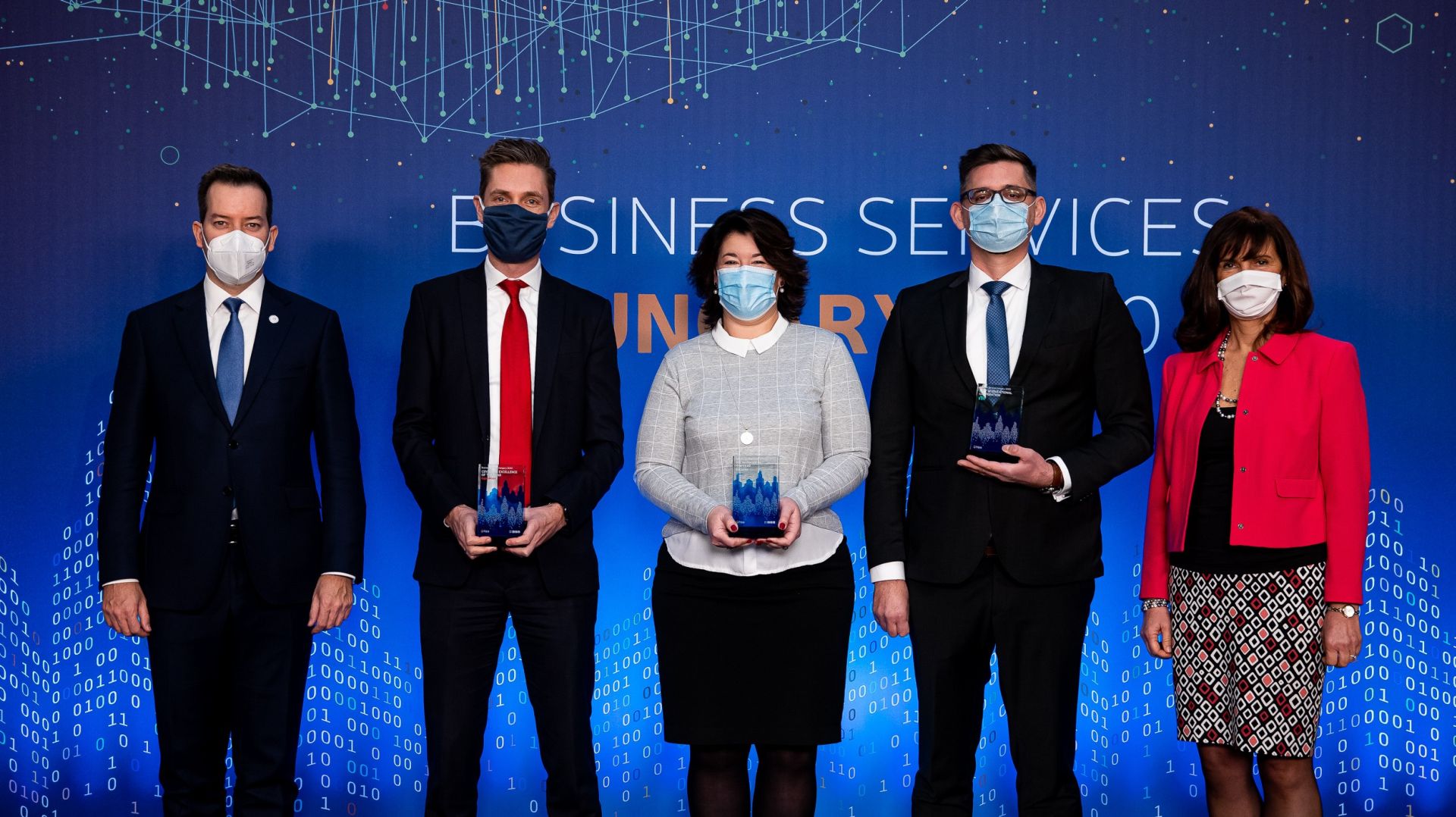
Business Services Hungary 2020: Key industry trends and tendencies after the pandemic - VIDEO
2020. 11. 25.

The Hungarian Investment Promotion Agency (HIPA) has organized an online event and award ceremony for the sixth time. This year again, a comprehensive survey with the participation of 67 companies was conducted among the business service centres (BSCs), whose results were the focal point of the online presentations. The event was hosted by HIPA in partnership with the AmCham Hungary BSS Platform, and this year the prestigious awards handed over at the event were granted to ExxonMobil, Eve Bader, general manager of Roche Services (Europe) and NI Hungary.

The Hungarian Business Services Sector has become one of the leading international hubs for business services within the Central and Eastern European region. It has reached a high level of maturity and complexity, while maintaining the ability to engage and retain talents and to continuously attract new investment. The sector, with 131 companies employing 63,892 people, has performed outstandingly over recent years and has become one of the leading industries of the country's economy. Despite the COVID-19 pandemic, the continuous growth of companies and the number of their employees can be observed, which confirms the attractiveness of the sector.
Based on the Survey's results the tendency for companies to broaden the scope of high-value added activities and to place greater emphasis on conscious talent management, educational cooperation and innovation continues. In order to keep up with new trends both in the business services and labour markets, the gradual transformation of corporate strategies and operational practices are essential.
The COVID-19 pandemic has transformed the world and affected all industries. In contrast with this, the BSC sector has remained stable and is performing well in these challenging times. BSC executives were forced to make quick decisions and since the biggest step was almost all jobs being moved to home-office and all activities managed from home, managers at every level were forced to rethink the way they work.
Furthermore, the situation caused by COVID-19 is accelerating trends such as automation and artificial intelligence and has an impact on new job opportunities in IT and technology. The pandemic accelerated the shift to remote working as the digital world can support the transition with new tools and technologies. The successful transition to remote working has led to a landslide transformation of work culture for most companies. While the proportion of home office workers has gradually been increasing over recent years, the pandemic this year catalysed the digital transition of office space.
It can be seen that the business service sector has rethought office space, and it is anticipated that the new balance between remote working and office-based work will be different to pre-Covid times. These factors will also have an impact on the future of cities and property: these tendencies imply changes in the residential market as homes must accommodate workspace and connected infrastructure but do not necessarily need to be in central locations or well connected. The distance between the workplace and homes could increase and the market could become more decentralized and give deurbanization a new push after years of urban growth.
New opportunities also arise from the pandemic situation as companies move towards a hybrid operational model combining on-site and remote working, allowing more talent recruitment from Hungary's regional university cities. More and more BSCs have realised the importance of co-operation with educational institutions: ties are especially close with higher education institutions in order to prepare graduates to meet the competence requirements of BSCs, as fulfilling the ever-growing demands of new talent and retaining employees are fundamental for centres. Moreover, industry specific education programmes and promising new initiatives have been launched to raise the awareness and attractiveness of the sector for young people. This inspires a new focus on employer branding, smart recruitment processes, and employee value proposition (EVP).
In summary, Hungary's business services sector has been able to maintain its competitive edge due to the fact that the country continuously provides a highly skilled workforce, high-standard offices and IT infrastructure, as well as a supportive and stable business environment coupled with excellent quality of life.
You can study the Business Services Hungary 2020 survey by clicking here.
CENTER OF EXCELLENCE OF THE YEAR: ExxonMobil
Based on the Business Services Survey 2020, last year's results, and the complexity of its operations, ExxonMobil is awarded as the center of excellence of the year. The company expanded its service portfolio, initiated various new high value added functions and it has contributed to the continuous development of the BSC sector in Hungary.
BSC MANAGER OF THE YEAR: Eve Bader, Roche
The BSC Manager of the Year title is awarded to executives, who demonstrate professional excellence in their skills, exhibit ethical behaviour towards employees, and who, in their activities promote cooperation between sector players while proactively contributing to the Sector's future development. Roche Services (Europe) Kft's achievements during recent years have been outstanding and the company has contributed to the expansion of employment in the country. Eve Bader, general manager of Roche Services (Europe) Kft has demonstrated passionate and innovative leadership that has inevitably resulted in more high added-value activities and the extension of the service portfolio with various new functions in Hungary.
BEST IN EDUCATIONAL COOPERATION: NI Hungary
NI Hungary places special emphasis on education in Hungary. The company has made significant efforts to facilitate cooperation between the BSC sector and the educational institutions in Hungary. NI Hungary has a long-established and constantly expanding collaboration with higher educational institutions and secondary schools including scholarship programmes, training programmes for business competences and business language skills.